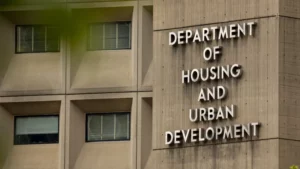On February 20, 2025, the Trump administration concluded its decision to eliminate Temporary Protected Status for Haitians, potentially leading to deportations this summer. The announcement was made by Kristi Noem, the Secretary of Homeland Security, in a move widely viewed as part of President Trump's broader strategy to redefine immigration policies established under the Biden administration.
Trump Administration Moves to End Protections for Haitian Immigrants

Trump Administration Moves to End Protections for Haitian Immigrants
The Trump administration's latest immigration overhaul targets Haitians previously authorized to stay in the U.S.
Under Temporary Protected Status, more than 500,000 Haitians were allowed to stay in the U.S. due to their inability to return to Haiti safely, following significant disasters or conflicts. This program had previously been extended by President Biden for 18 months, a decision now rolled back by Noem. As a result, existing protections for many Haitians will now lapse in August instead of early next year.
Critics of the Temporary Protected Status argue that it functions as a long-term residency program rather than a temporary solution for those in genuine crisis. The potential termination of these protections affects many individuals, some of whom have been in the U.S. since a catastrophic earthquake hit Haiti in 2010, and they now face uncertainty regarding their future in America.
The decision reflects a shifting immigration landscape under the Trump administration, where prior commitments to humanitarian protection for vulnerable populations are being reconsidered. As discussions continue around the future of Temporary Protected Status, the implications for Haitian immigrants and similar programs remain a contentious topic within U.S. immigration policy debates.
Critics of the Temporary Protected Status argue that it functions as a long-term residency program rather than a temporary solution for those in genuine crisis. The potential termination of these protections affects many individuals, some of whom have been in the U.S. since a catastrophic earthquake hit Haiti in 2010, and they now face uncertainty regarding their future in America.
The decision reflects a shifting immigration landscape under the Trump administration, where prior commitments to humanitarian protection for vulnerable populations are being reconsidered. As discussions continue around the future of Temporary Protected Status, the implications for Haitian immigrants and similar programs remain a contentious topic within U.S. immigration policy debates.























